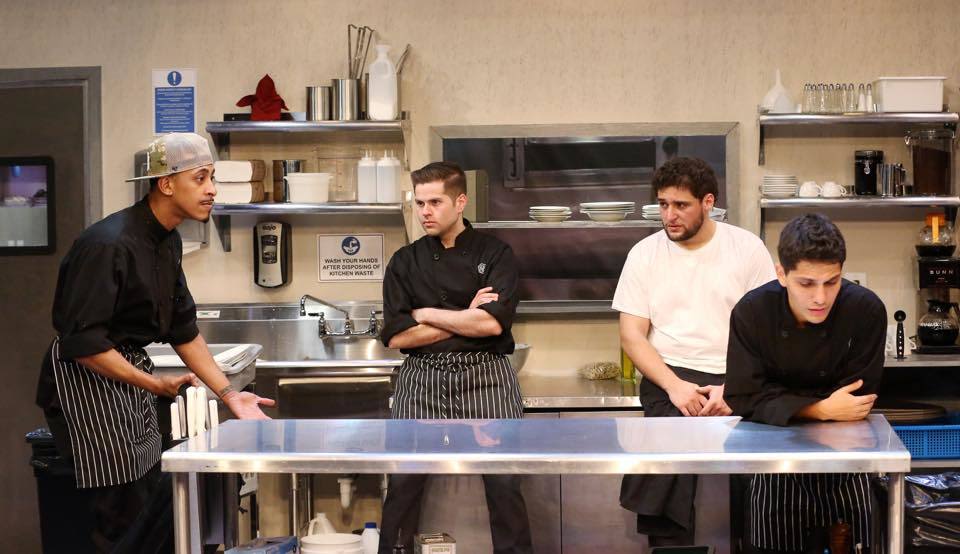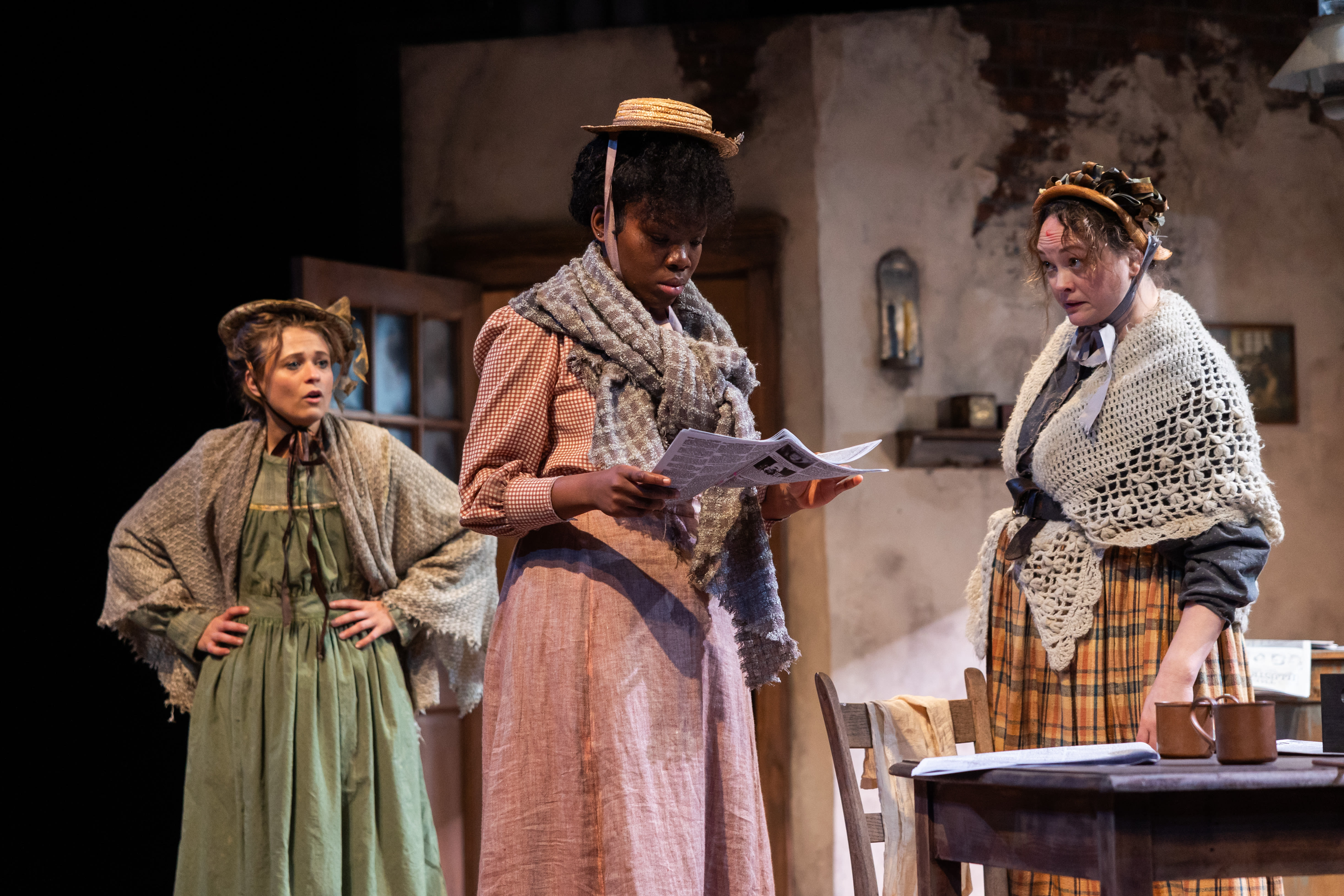My Mañana Comes Delivers Dreams and Disappointments

Image: Stages Repertory Theatre
Four restaurant workers explore their ambitions and frustrations in Stages Repertory Theatre’s regional premiere of Elizabeth Irwin’s 2014 play.
Directed by Leslie Swackhamer, Irwin’s play is a timely and relevant exploration of the working class, as well as immigration and identity politics. One of the play's strengths is dramatizing the way aspirations are often at odds with the uncontrollable forces of society, economics and life choices. Irwin illuminates how the immigrant experience is not a monolithic one, but as individual as the people who experience it, whether from the point of view of a citizen or a newcomer to America. I liked how this play did not privilege one point of view, or pit groups against each other, instead highlighting the complexities and moral dimensions of the interactions between individuals from different social groups.
A 2015 Drama Desk nominee for Best Play, My Mañana Comes gives a glimpse of the lives of busboys Peter, Pepe, Whalid and Jorge as they work in a five-star restaurant, where they make fun of the trivial demands of their upper class customers while also depending on their business and tips.
The timely play was chosen by Stages a year and a half ago. “The national dialogue concerning issues of immigration and economic equality were very different then," says artistic director Kenn McLaughlin. "In my wildest dreams, I could not have imagined that the world-wide protests on these subjects would be occurring while you sit in our theaters and experience this story. But it is the social context of this moment that makes this play explode beyond the confines of descriptions or categories.”
And explode it does. While it takes a while for the drama to build amongst these four workers—relationships that bleed over into friendships and sometimes even into father-and-son like dynamics—one understands the stakes involved during pivotal and irreversible decisions made during the play's climax.
As someone who worked in a restaurant with co-workers from across the globe, I was impressed with the verisimilitude of the set, with details ranging from coffee stations to lockers to frosted desserts waiting to be served. Audiences feel like they are working in the kitchen alongside these characters, thanks to the talented design team, including Jodi Bobrovsky (properties), Devlin Browning (lighting) and Torsten Louis (scenic).
The main strength of this play lies in the excellent performances from the ensemble cast, who work together with a high level of energy and synchronicity. They all deliver—there is no weak link.
Juan Sebastian Cruz (Pepe) is not only charming as one of the younger worker who struggles to save money, but is amazingly adept at the physical aspects of his role, like juggling condiment bottles and revealing a joie de vivre that is stifled by his economic challenges. Dayne Lathrop as Whalid seems to come alive as the play progresses, representing a moral blindness that allows us to push aside thinking too profoundly about the immigration issues that don’t affect him personally for the long term. Gabriel Regojo (Jorge) embodies a Puritan work ethic, and convincingly portrays a man committed to pursuing his dream. But things get complicated as the audience realizes his dream is about bringing his earnings back to his home country—an issue that brings tension into his relationships with one of his coworkers.
Perhaps the strongest performance is from Brandon Morgan (Peter), who has the most demanding role as the leader of the kitchen. His presence is essential in almost every scene. He makes his character so believable, you think this might be more of a docu-drama than a stage play. All four actors fulfill their roles in interesting ways, emphasizing once again that Houston has a lot of young acting talent—it will be exciting to see what these gifted actors do in the future.
All four underscore the paradoxes in American society—that the very poor often must work in the settings of luxury reserved for the rich—and that everyone has a version of their own “American” dream—but the play asks who can pursue these dreams.
Playwright Elizabeth Irwin notes that “there is no one immigrant story,” and My Mañana Comes reminds us of this in a powerful way. "I hope this play sheds light on just how challenging it is to survive in the U.S.," says Irwin. "We can talk about the American Dream as something you can achieve through hard work, but we must also acknowledge the enormous amount of luck it involves and that the circumstances that one is born into have an enormous effect on whether it can be realistically achieved.” This play is an important contribution to that conversation.
Thru March 5. From $21. 3201 Allen Parkway. 713-527-0123. stagestheatre.com




